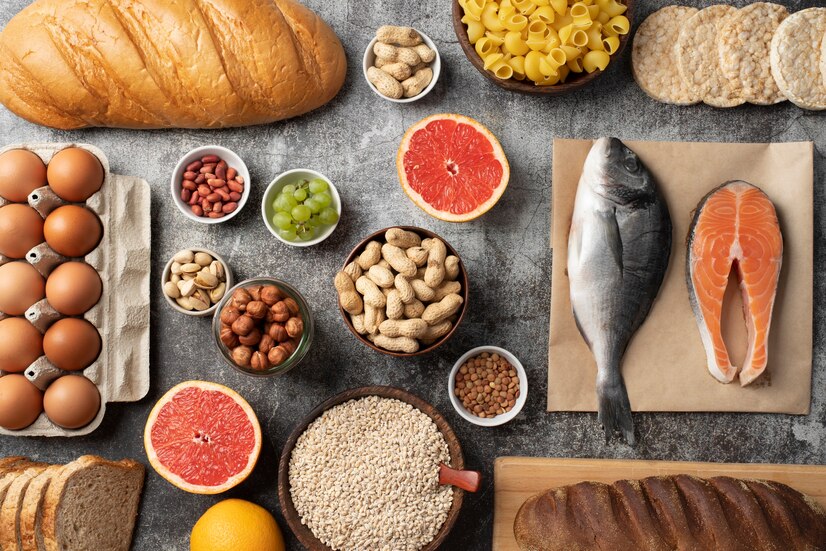Understanding Hormonal Changes in Female Athletes
Female athletes experience hormonal changes throughout their menstrual cycle, which can have a significant impact on their performance and overall health. These changes are primarily driven by fluctuations in estrogen and progesterone levels. Understanding these hormonal changes is crucial for female athletes to optimize their nutrition strategies and achieve peak performance.
During the follicular phase of the menstrual cycle, which occurs after menstruation, estrogen levels gradually increase. This hormone plays a crucial role in building muscle mass, enhancing energy levels, and improving endurance. As estrogen levels rise, female athletes may experience increased strength and stamina, making it an ideal time to focus on high-intensity training and consuming nutrient-dense foods.
In contrast, the luteal phase, which occurs after ovulation, is characterized by higher levels of progesterone. Progesterone can have a mild diuretic effect, leading to increased water retention and potential bloating. It is important for athletes to be mindful of their fluid intake during this phase and ensure they are properly hydrated. Additionally, consuming foods rich in antioxidants and anti-inflammatory properties can help reduce any potential discomfort or inflammation associated with the luteal phase.
By understanding these hormonal changes and their impact on the body, female athletes can tailor their nutrition strategies to make the most of each phase of their menstrual cycle.
Nutrition Strategies for Pre-Menstrual Phase
The pre-menstrual phase, also known as the luteal phase, is an important time for female athletes to focus on nutrition strategies that can help alleviate any symptoms and optimize performance. During this phase, estrogen and progesterone levels are at their highest, which can lead to fluctuations in mood, energy levels, and cravings.
To support overall health and well-being during the pre-menstrual phase, it is important to prioritize a balanced diet that includes a variety of nutrient-dense foods. Consuming complex carbohydrates, such as whole grains, fruits, and vegetables, can help stabilize blood sugar levels and provide sustained energy throughout the day. Including lean proteins, such as chicken, fish, and plant-based sources, can help support muscle recovery and repair. Additionally, incorporating healthy fats, like avocados and nuts, can help regulate hormone production and reduce inflammation.
It is also important to pay attention to hydration during this phase. Drinking an adequate amount of water and fluids can help reduce bloating and support overall well-being. Additionally, herbal teas and natural remedies, such as chamomile or raspberry leaf tea, may help alleviate symptoms such as cramps or mood swings.
By following these nutrition strategies, female athletes can optimize their performance during the pre-menstrual phase and reduce any potential discomfort or disruptions to their training routine.
Optimizing Nutrition During Menstruation
Menstruation is a natural process that can affect female athletes both physically and emotionally. It is important to prioritize nutrition during this time to support the body's energy needs and promote overall well-being.
During menstruation, iron levels may be depleted due to blood loss. It is important for female athletes to ensure they are consuming enough iron-rich foods, such as lean red meat, poultry, fish, beans, and leafy green vegetables. Iron is essential for the production of red blood cells, which carry oxygen to the muscles. Adequate iron intake can help prevent fatigue and optimize athletic performance.
In addition to iron, it is important to focus on consuming a balanced diet that includes a variety of nutrients. This includes carbohydrates for energy, proteins for muscle repair and recovery, and healthy fats for hormone regulation. Incorporating foods rich in vitamin C, such as citrus fruits and bell peppers, can help enhance iron absorption.
Female athletes should also listen to their bodies during menstruation and adjust their training intensity and volume as needed. It is important to prioritize rest and recovery to allow the body to heal and replenish energy levels. Adequate sleep, stress management, and self-care practices can also contribute to overall well-being during this time.
By optimizing nutrition and self-care during menstruation, female athletes can support their physical and emotional well-being and maintain optimal performance throughout their menstrual cycle.

Balancing Hormones Through Proper Diet and Supplements
Proper diet and supplements can play a significant role in balancing hormones for female athletes. A diet rich in nutrient-dense foods can provide the necessary vitamins, minerals, and antioxidants to support hormonal balance and overall health.
Including a variety of fruits, vegetables, whole grains, lean proteins, and healthy fats in the diet can help provide essential nutrients that support hormone production and regulation. Foods rich in omega-3 fatty acids, such as fatty fish, flaxseeds, and chia seeds, can help reduce inflammation and support hormone balance. Additionally, consuming foods high in fiber, such as legumes and cruciferous vegetables, can aid in estrogen metabolism and elimination.
Supplements can also be beneficial for female athletes looking to balance their hormones. Omega-3 fatty acid supplements, vitamin D, magnesium, and probiotics are commonly recommended supplements that can support hormonal balance. However, it is important to consult with a healthcare professional or registered dietitian before starting any new supplements to ensure they are safe and appropriate for individual needs.
Ultimately, a balanced diet that includes a variety of nutrient-dense foods, along with targeted supplementation if necessary, can help female athletes achieve hormonal balance and optimize their performance.
The Role of Hydration in Hormonal Balance
Proper hydration is crucial for maintaining hormonal balance in female athletes. Water is involved in numerous physiological processes in the body, including hormone production, regulation, and metabolism. Dehydration can disrupt these processes and negatively impact performance and overall health.
During the menstrual cycle, it is important for female athletes to pay attention to their fluid intake and ensure they are adequately hydrated. Drinking enough water can help alleviate symptoms such as bloating, cramps, and mood swings. It can also support the body's natural detoxification process and aid in the elimination of waste products and excess hormones.
In addition to water, female athletes can also hydrate with other fluids such as herbal teas, electrolyte-rich beverages, and low-sugar sports drinks. These options can help replenish electrolytes and provide additional hydration benefits.
It is important for female athletes to listen to their bodies and drink fluids throughout the day, especially during and after physical activity. Monitoring urine color can be a helpful indicator of hydration status, with pale yellow urine being a sign of adequate hydration.
By prioritizing hydration, female athletes can support hormonal balance, optimize performance, and maintain overall health and well-being.
